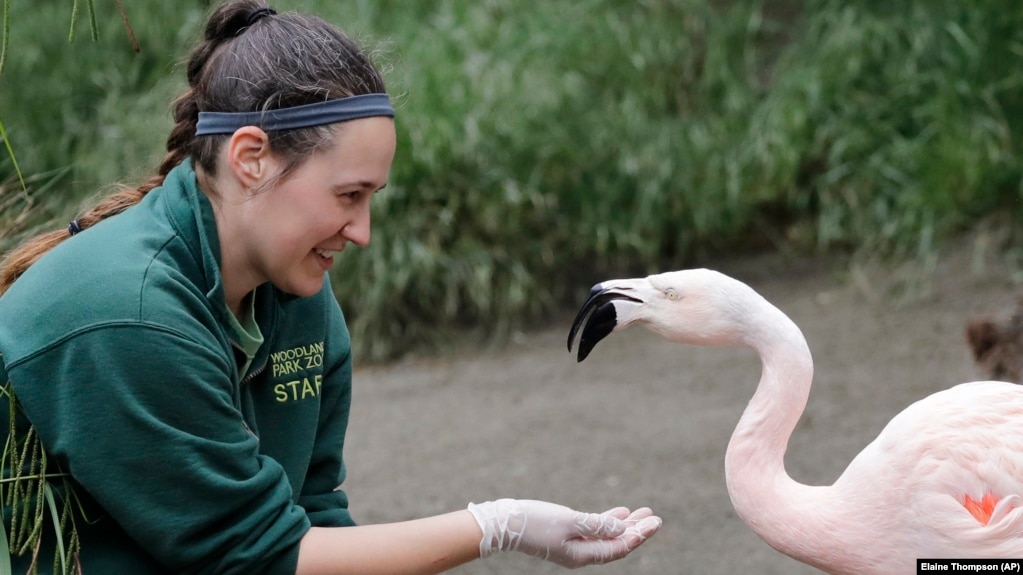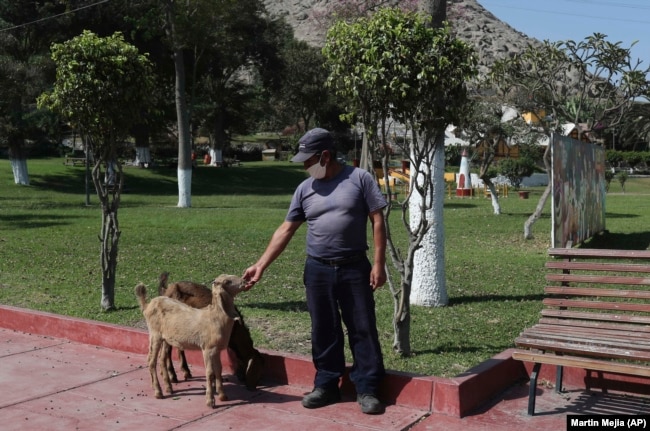毎週日曜日は、”Words and Their Stories ” で面白い表現などを紹介してくれるVOAですが、今日はproverb( ことわざ)。
早速、聞いて、読んでみましょう!!
- 自分を食べさせてくれる人の手を噛むな「恩を仇で返すな」
- Don't 'Bite the Hand That Feeds You'
- 英語の小窓ーーことわざ編
- 原文 Don't 'Bite the Hand That Feeds You'
自分を食べさせてくれる人の手を噛むな「恩を仇で返すな」
Don't 'Bite the Hand That Feeds You'
人と人との関係は複雑です。そこで、いくつかの良いルールがあります。例えば、職場や友人との付き合いでは、冷静になって気楽に接するのが良いでしょう。
他の人に怒鳴ったり、誰かに怒られたりすると、個人的な関係や仕事上の関係が損なわれる可能性があります。これは特に、その ”誰か” が意義ある方法であなたを助けてくれている場合 - 例えば、給料をもらっているような場合!ーにあてはまります。
そのような状況を表現するために、英語には、to bite the hand that feeds youという非常に便利な表現があります。
このフレーズは、あなたを助けてくれている人、または助けてくれた人に対して、あなたが悪い行動をとることを意味します。自分を養ってくれる手を噛むということは、ありがたがらない、恩知らずな、感謝していないということです。そして、それは “un” という言葉がたくさん出てきます。つまり、自分を助けてくれている人に敵意をむき出しにし、攻撃し、さらには傷つけてしまうのです。
私たちはしばしばアドバイスの言葉としてこの表現を使います- don’t bite 、または you should not bite the hand that feeds you.
今、例でそれを使ってみましょう。
誰かがあなたの仕事場に来て、あなたから何かを買いたい、あるいは新しい仕事であなたにチャンスを提供するとしましょう。しかし、あなたは、その見返りに、その人に対して失礼だとしたら。その場合、私はあなたに言うでしょう、“You should not bite the hand that feeds you.”
この表現は、過去に助けてくれた人に反旗を翻すという意味にもなります。過去に助けてくれた人に対して敬意を示さないという意味にもなります。
ある人は、このフレーズは、すべて古代ギリシャに遡ると言います。詩人のサッフォーは2600年以上前に使っていたと言われています。
他の専門家によると、”庭師と彼の犬”と呼ばれるイソップ寓話の一つに、この表現の例があるといいます。
物語はこうです:庭師の犬が井戸の近くの庭で遊んでいたところ、落ちてしまいました。彼は手を井戸の中に伸ばして犬を引きずり出しました。しかし、その男はこの後- 犬は彼の手をを噛んだのです!
「なんという恩知らずなことを!私はただ助けに来ただけなのに!」といったのです。そして、庭師は犬を置いて立ち去りました。
犬は彼に餌を与えたその手を噛んだのです。それは大きな間違いでした。
ここにもう一つの例があります。
私がインテリアデザイナーとして働いているとしましょう。人々の家に入り、それらを改善する方法を決定します。壁のペンキや床材からアートワーク、テーブル、椅子に至るまで、すべてを選びます。
さて、私は自分の仕事をしているので、クライアントは私にとってとても大切な存在です。彼らは私の ”パンとバター” であり、私の収益は彼らが私に支払うお金に基づいていることを意味します。クライアントが私の仕事に満足してくれれば、他の人にも私のことを教えるでしょう。そして、その口コミビジネスは、私にとってより多くの仕事とより多くのお金を意味します。
しかし、問題があります:彼はデザインの決定について常に考えを変えていて、コミュニケーションがうまく取れないのです。だから、小さな問題が大きな問題になることが多いのです。
どうすればいいのでしょうか?一方では、他のインテリアデザイナーを探すように言うこともできるし、もう一方では、彼と一緒に仕事をする方法を見つけることもできます。景気が悪いときには、たとえ難しいクライアントでも失うのはよくないことかもしれません。私は自分を養ってくれる手に噛みつかず、その難しいクライアントを我慢することにします。景気が良くなれば、彼にお帰り願うことが出来ます。
今日は以上です。この表現を使ってみてください。あなたは今までにあなたを養う手を噛んだことがありますか?または誰かがあなたの手を噛んだのかも?
英語の小窓ーーことわざ編
The early bird catches the worm. 早起きは三文の徳
Failure teaches success. 失敗は成功のもと
So many men, so many minds. 十人十色
It is no use crying over spilt milk. 覆水盆に返らず
Out of the mouth comes evil. 口は災いの元
Seeing is believing. 百聞は一見にしかず
Kill two birds with one stone. 一石二鳥
He that will lie will steal. 嘘つきは泥棒の始まり
Out of sight,out of mind. 去るもの日々に疎し
A word is enough to the wise. 一を聞いて十を知るMisfortunes never come singly. 泣き面に蜂
After the storm comes a calm. 雨降って地固まる
No pain, no gain. 虎穴に入らずんば虎子を得ず
Better to ask the way than go astray.
聞くは一時の恥、聞かぬは一生の恥
Birds of a feather flock together. 類は友を呼ぶ
Fortune comes in at the merry gate. 笑う門には福来たる
Speech is silver, silence is gold. 雄弁は銀、沈黙は金
ALL is well that endswell. 終わりよければすよし
最後はわたしの好きな言葉で
Where there is a will, there is a way.
為せば成る、なさねばならぬ何事も
The pen is mightier than the sword.
ペンは剣よりも強し
原文 Don't 'Bite the Hand That Feeds You'
 Zookeeper Joanna Klass hand feeds a Chilean flamingo at the Woodland Park Zoo in Seattle. The zoo has been closed for nearly three months because of the coronavirus outbreak, May 26, 2020. (AP Photo/Elaine Thompson)
Zookeeper Joanna Klass hand feeds a Chilean flamingo at the Woodland Park Zoo in Seattle. The zoo has been closed for nearly three months because of the coronavirus outbreak, May 26, 2020. (AP Photo/Elaine Thompson)
And now, Words and Their Stories from VOA Learning English.
Relationships between people can be complex. So, to help there are some good rules to follow. For example, when dealing with people at work or with a friend, it is usually a good idea to stay calm and be easygoing.
Personal or working relationships can be damaged if you shout at other people or get angry with someone. This is especially true if that certain “someone” helps you in a meaningful way – like making sure you get paid!
To describe that situation, the English language has a very useful expression: to bite the hand that feeds you.
This phrase means that you act badly toward the person who is helping or has helped you. When you bite the hand that feeds you, you are being unthankful, ungrateful, unappreciative. And that is a lot of “un” words. In other words, you turn against, attack, and even harm someone who is helping you.
We often use this expression as a word of advice -- as in don’t bite or you should not bite the hand that feeds you.
Now let’s use it in an example.
Let’s say someone comes to your place of business and wants to buy something from you or even offer you a chance at a new job. But you, in return, are rude to that person. In that case, I could say to you: “You should not bite the hand that feeds you.”
This expression can also mean to turn against someone who helped you in the past. Used this way, you do not show respect for someone who has been there for you.
Some people say this phrase goes all the way back to ancient Greece. The poet Sappho was said to have used it over 2,600 years ago.
Other experts claim that one of Aesop’s Fables, called “The Gardener and His Dog,” shows an example of this expression.
The story goes something like this: A gardener’s dog was playing in a garden near a well and then fell in. The owner ran to help. He reached his hand into the well to pull out his dog. But as the man did this – the dog bit him on the hand!
“What very ungrateful behavior! I only came to help!” said the gardener. So, he left the dog and walked away.
The dog bit that hand that fed him. And that was a big mistake.
Here is another example.
Let’s say I am working as an interior designer. I go into people’s homes and decide how to improve them. I choose everything from wall paint and floorings to artwork, tables, and chairs.
Now, because I own my own business, my clients are very important to me. They are my ‘bread and butter,’ meaning my earnings are based on the money they pay me. If my clients are happy with my work, they will tell other people. And that word-of-mouth business means more work and more money for me.
But there is a problem: I have a difficult client. He is always changing his mind about design decisions and does not communicate well. So, small issues often become big problems.
What should I do? On one hand, I could tell him to find another interior designer. On the other hand, I could just find a way to work with him. If the economy is weak, it may not be a good idea to lose a client, even a difficult one. I decide to not bite the hand that feeds me and put up with the difficult client. If the economy improves, then I can show him the door!
And that’s our show for today. Try using this expression. Have you ever bitten the hand that fed you or perhaps someone bit your hand?
Until next time ... I’m Anna Matteo.
____________________________________________________________
Words in This Story
ungrateful – adj. not feeling or showing thanks for favors, help, gifts, etc.
unappreciative – adj. not giving recognition or thanks for something
rude – adj. not having or showing concern or respect for the rights and feelings of other people : not polite
gardener – n. one who spends time cultivating plants and tending a garden for pleasure or recreation
client – n. a person who uses the professional advice or services of another
word-of-mouth – adj. oral communication
show someone the door – slang expression to rid of someone quickly and without concern
